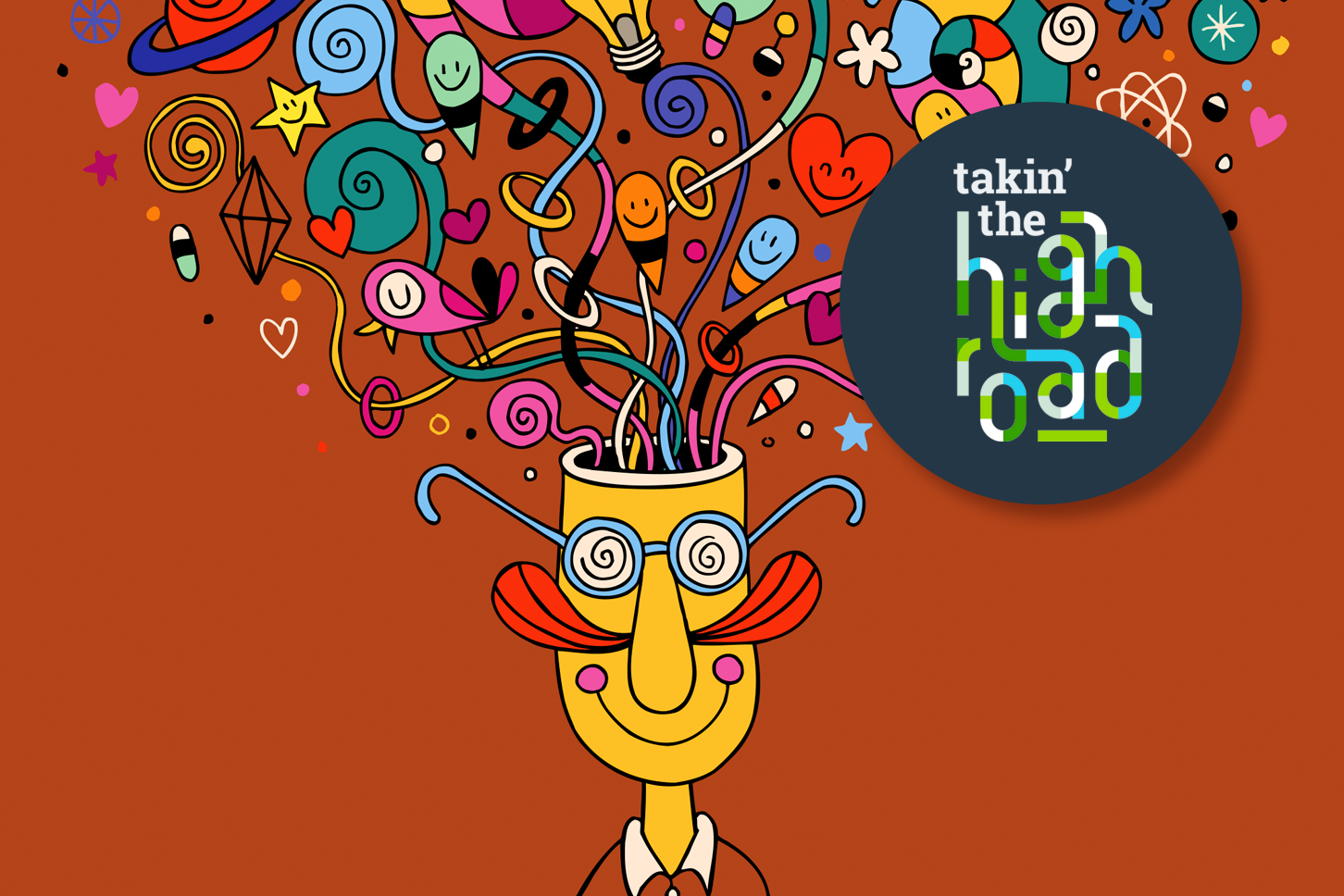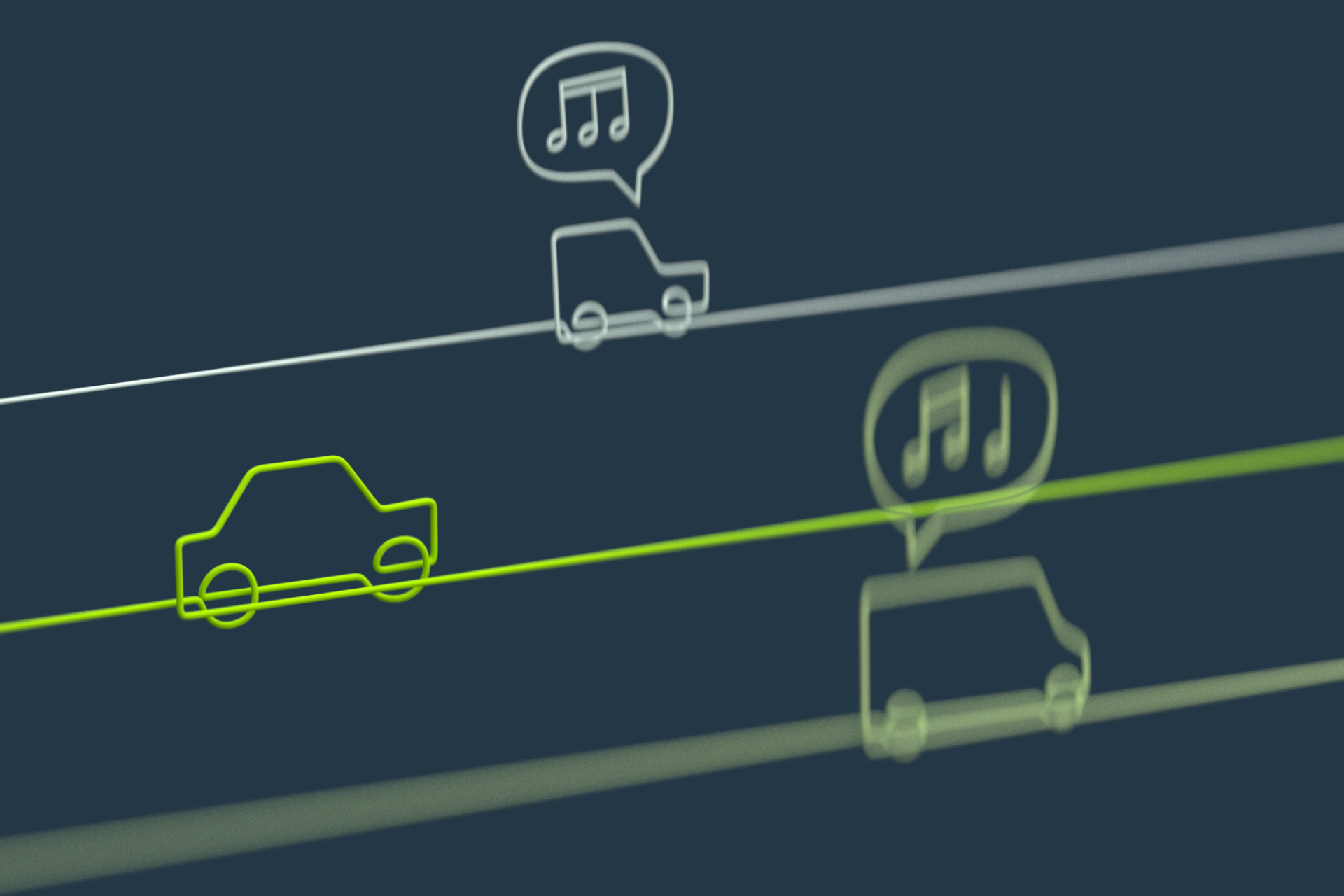The many benefits of empathy on the road
February 9, 2023
These are all moments we’ve likely experienced while driving. And these kind acts—which may seem small—highlight the power of empathy and the ripple effect it has on the road. What do we mean by that?
Let’s dive into the relationship between empathy and driving, and
how you can take simple steps to lean into kindness while doing so.Why empathy on the road is important
First, what is empathy? We’ll be talking a lot about it, so let’s cover the basics. Empathy can be compared to the age-old expression, “Put yourself in their shoes.” It’s the ability to understand and share the feelings of another, see things from their point of view and imagine yourself in their place.
Unfortunately, we’re not always empathetic—especially while we’re driving. It’s easy to discount the experience and feelings of others on the road, when we are often caught thinking only of ourselves and our own emotions.
The COVID-19 pandemic didn’t necessarily help with things, either. We learned from the
Insurance Institute for Highway Safety (IIHS) that the speeding and risky driving behaviors that started increasing in the spring of 2020, seem to have become the new normal. When you couple these driving behaviors and the increase of road rage incidents, it leaves little room for empathy or compassion.Empathy, our driving behavior and the brain
If you’re into the science of things like we are at HiRoad, you’ll want to read this. It turns out that individuals with a history of dangerous driving show less activation in parts of the brain that are connected to empathy and our ability to imagine the mental states of other people, compared to those that practice safe driving—according to research highlighted by the Association for Psychological Science (APS).
Put another way: dangerous or risky drivers may be less considerate of others, safe drivers may be more empathetic to others on the road.
When you’re considerate of others on the road and able to empathize with who they may be, what they may be thinking or feeling—you could benefit too.
The benefits of empathy on and off the road
As you think about your own driving experiences and how empathy has played a role in those experiences, you may wonder if anything came from it. Empathy can help create ripples of good on and off the road. Here are some key benefits of empathy, shared by Psychology Today:
Connects you to others. Empathy allows you to feel and understand the experiences of others. It connects you in a meaningful way that allows us to connect with one another, impacting our overall well-being.
Lowers stress. Another way to manage stress? Don't mind if we do. As you engage in empathetic behavior, you draw out skills to regulate your emotions that may help you lower stress levels, allowing you to better relate to others in a positive way. In addition, one study found that empathy can lead to lowered stress and improved driving performance.
Guides our moral compass. “Treat others the way you’d want to be treated.” You've likely heard this code of conduct, and it’s a strong indicator of empathy. Empathy can help us identify what we consider to be acceptable behavior (slowing down in a school zone, waiting for your turn to merge or allowing others to pass). Empathy is the foundation for moral behaviors that create healthier, safer communities.
Those are benefits we can get behind. But as life would have it, being empathetic can be one of the more difficult things to master behind the wheel.
How to be more empathetic while driving
Empathy is important, but it’s not always easy to practice. So many of us likely practice empathy from time to time, but it can be a challenge. It takes work to be self-aware and put yourself into another’s experience.
Thankfully, we’ve got a useful tool to share with you. Developed by former manager at LEGO, Time Courtney, there are simple ways to build a habit of empathy for others on the road. Courtney found a simple tactic to replace road rage with empathy through personas.
Personas are simply fictional characters, typically used in business efforts, to understand others needs, experiences, behaviors and goals. Creating personas can help you empathize by imaging yourself in their shoes. Here’s Courtney’s three dimensions to creating a persona for someone else on the road:
Task is what that person is doing. Are they going to work? Running errands? Driving with kids to the movies?
Mode is mode of transportation (bike, scooter, motorcycle, car, bus, truck).
Ability is the set of physical and cognitive abilities a driver possesses. Are they able bodied or disabled? Alert or impaired?
Using these three dimensions, you can quickly create personas. Here are some examples:
A parent dropping their kids at school on their electric cargo bike.
An elderly person driving to the pharmacy in their car.
An able-bodied delivery driver making deliveries in their van.
Take it a step further by adding details that share a story of who that person behind the wheel is with context, conditions and emotions.
An elderly person driving to the pharmacy in their car. They’re exhausted from caring for their significant other who is ill at home and nervous to drive at night.
Now, with a few personas flushed out, Courtney asks one thing: imagine yourself in their shoes. How would you experience the road if you were them? Would you drive differently? Would you feel differently?
As you empathize with these personas, you can see how we might be able to see people as people on the road—so much more than another car you’re anxious to pass.
Recognizing empathy and creating ripples of good
As roads become more congested and risky to drive on, it’s clear how much we could benefit from empathetic drivers to spread kindness and ripples of good in their communities. At HiRoad, we celebrate the drivers who take the mindful approach, place themselves in the shoes of others and make decisions that embody good, safe driving.
We all have a place on the road. By taking small steps to be more empathetic to others while you drive, you’re taking the high road. Those acts of empathy don’t go unnoticed. At HiRoad, we put ourselves in your shoes to provide innovative solutions to recognize your good driving habits and celebrate them every month with savings on your car insurance bill.
The information in this article was obtained from various sources not associated with HiRoad®. While we believe it to be reliable and accurate, we do not warrant the accuracy or reliability of the information. HiRoad is not responsible for, and does not endorse or approve, either implicitly or explicitly, the content of any third party sites that might be hyperlinked from this page. The information is not intended to replace manuals, instructions or information provided by a manufacturer or the advice of a qualified professional, or to affect coverage under any applicable insurance policy. These suggestions are not a complete list of every loss control measure. HiRoad makes no guarantees of results from use of this information.
Stay on the path
Get HiRoad in your inbox
Share your email to get the latest about our community of mindful drivers.



